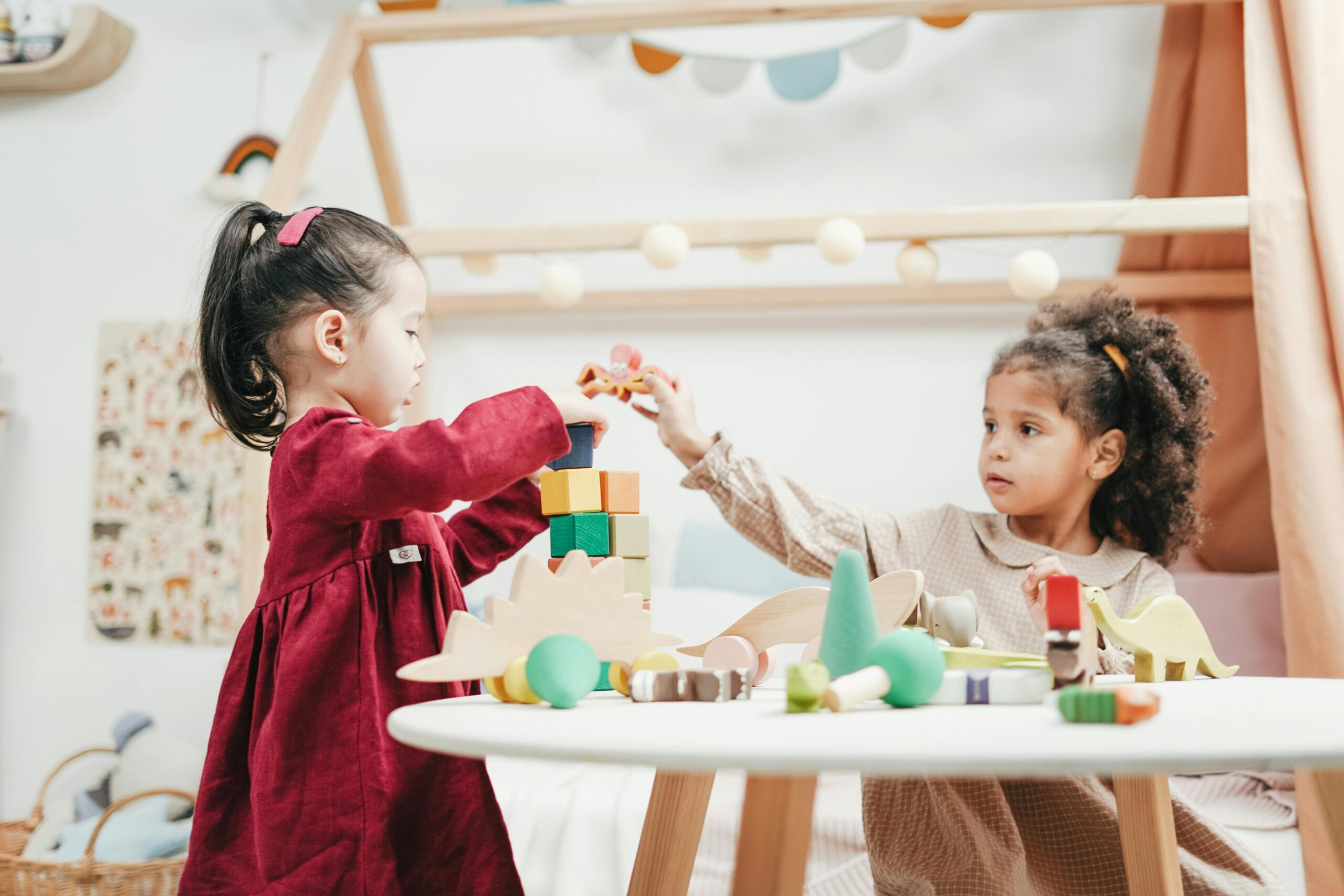Baby playtime is essential to growth and development because it contributes to the child’s physical, social, emotional, and cognitive well-being.

World Health Organisation’s program manager, Dr. Fiona Bull, states that integrating physical exercise, decreasing inactive time, and ensuring good sleeping habits for young children can enhance their overall mental and physical health and wellness. In addition, it helps in the prevention of early-life obesity and related disorders in the future.
The first years of a child are full of thrilling discoveries and fast growth. Their brain develops quickly during this crucial time, setting the foundation for later learning and cognitive capacities. Providing children with appropriate toys is an effective way for parents and caregivers to support their development at every stage.
Playtime also offers a better opportunity for parents to interact fully with their children. According to the World Health Organisation, children under five should spend less time sitting or watching television or being restricted in seats or prams.
The benefits of baby playtime in growth and development
- Through unstructured play, children can develop their group work, sharing, negotiating, conflict resolution, and self-advocacy abilities.
- When children direct their play, they develop decision-making skills, move at their own pace, discover their areas of interest, and eventually fully participate in the hobbies they want to pursue.
- Play helps kids learn new skills as they become experts in their world, which boosts their confidence and builds the resilience they’ll need to overcome challenges in the future.
- Children connect with the environment around them through play, even at a very young age. Through play, children can construct and discover a world they can control, overcoming their fears and rehearsing adult roles, sometimes in cooperation with other kids or caregivers.
- Less verbal children may be able to use play to communicate their opinions, experiences, and even complaints, giving their parents a better grasp of their thoughts.
- Baby playtime is a fantastic way for parents to spend quality time with their kids.
- Play and free time that facilitates social connections with peers are essential elements of socio-emotional growth.

Playtime activities for babies and toddlers
Play can take various forms, and there is no right or wrong way to do it as long as your child is enjoying themselves and staying safe.
Check out these fun and easy ways to assist your child’s growth and development. Although kids of different abilities can enjoy these games, feel free to modify them as your child needs.
Before we explore developmental toys and games, let’s learn about the four children’s development in their early years.
Speech and language development
Speech and language development skills are most intensive for the first 3- years of life. This is the period when the brain is developing and maturing. Your child achieves this skill where there are sounds and where there is consistent exposure to the speech and language of others.
Cognitive development
Cognitive development involves how the brain can understand, process, and learn. As children grow they learn to solve problems, think critically, and make decisions.
Motor development
A child’s motor development involves changes in their ability to move, coordinate, and maintain balance and growth in their body. Motor development has two types:
Fine motor skills: This involves the use of hands and upper extremities. This includes grasping and reaching objects. It is also involved in vision and hand-eye coordination.
Gross motor skills: This involves lifting hands, crawling, rolling over, and eventually walking.
Social and emotional development
Early positive social and emotional development influences a strong foundation for learning and development throughout life. Social development is the child’s capacity to establish and maintain a connection with adults and other kids. A child’s capacity to communicate, identify, control, and react correctly to the feelings of others is emotional development. Social and emotional development significantly influences the mental health of young children.
Baby playtime ideas and developmental toys
Although an infant can’t pretend to play with a doll or a 7-month-old solve a puzzle, toys are components of a baby’s learning and development process. Below are some toys that will promote your baby’s growth and development.

High contrast toys
During the first months, a newborn baby’s eyesight is still developing. They start with low contrast sensitivity, which means they can perceive high-contrast objects more easily. As a result, infant toys with vivid or high-contrast colors (such as black and white) and bold patterns tend to catch a baby’s attention.
Noisemakers
Playing with various noise-making toys helps a baby develop auditory discrimination—the ability to recognize and distinguish between different sounds—which will later aid with language comprehension. Toys that produce a variety of noises are beneficial for this.
Babies also develop hand-eye coordination by grasping, shaking, and interacting with a rattle or chime toy.
Stacking toys
Stacking rings and cups enhances hand-eye coordination and fine motor abilities. Your baby’s hands get stronger and more flexible as they grasp and handle the rings or cups.
When stacking the rings, a baby has to find out how to fit the pieces together. They become more skilled at solving problems and gain confidence.
Baby safe blocks
Playing with blocks helps baby’s little fingers learn to grasp, stack, and move the pieces as they develop their fine motor and hand-eye coordination skills. Blocks also help in learning through the building of simple block constructions.
Choose blocks made of softer materials for infants. Pick a material that is tough to gnaw, babies who are still teething can nibble on block corners.
Push/pull toys
Your infant can practice walking with the help of a push toy if they are standing but not yet taking unassisted steps. A wagon, baby doll stroller, or toy shopping cart would be good push toys for an early walker. Choose toys with a wide and firm base to prevent falling.
Pull toys provide an extra challenge for babies who can walk. Many fine and gross motor abilities come together when a kid walks and pulls a toy: their hands hold the string, their arms pull it along, and their torso and legs work together to balance and take steps.
Interactive books
Babies are captivated by simple books with repeating text, fascinating graphics, and interactive elements like flaps or textures, which help to support early language development.
As your child gets older, read to them. To foster a child’s love of books, you can sit and look at books together even though they won’t understand what you’re reading.

Musical toys
Babies quickly learn to distinguish between tones, melodies, and pitches when listening to music and musical devices. Music is also crucial for language development.
Making music can even aid in a baby’s cognitive and motor development. Playing instruments like rattles or drums promotes the development of hand-eye coordination, fine motor skills, and general proprioception—the capacity to perceive changes in the position and motion of our body parts even when hidden from view. Each of these is crucial for developing oral communication abilities.
Plush toys
Soft and cuddly toys provide a sense of security and comfort, promoting emotional growth in babies and fostering a bond.
Well-chosen toys are important for fostering basic skills and igniting your child’s curiosity about learning. Select toys that enhance your child’s cognitive, motor, language, and social-emotional growth, to establish a stimulating atmosphere that helps them succeed in the future.
In this way, baby playtime during these critical formative years does more for your child than merely provides entertainment value. Now let’s start having fun!

